Bioturbation
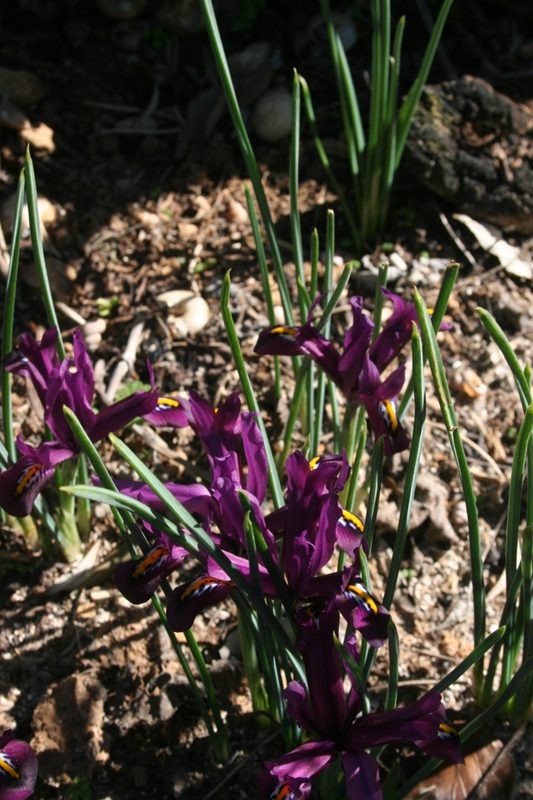
This week: DiY Database; Bioturbation; Corrosion; Split visit; Weather;
We have enjoyed warm sunny days this week. Not as warm as the UK has had, but still warm enough to enjoy a cappuccino on the terrace every morning.
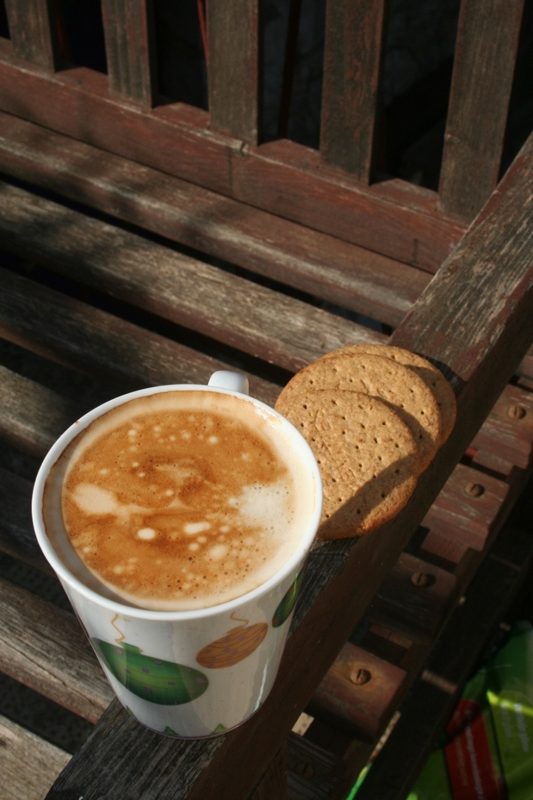
DiY Database
Something which I started last year is a register of all the preserved historic British police motorcycles. Not too difficult, as there are only around 150 known examples. There are probably another 100, hidden away, out of sight – one came to light this week which is in a private collection that never sees the light of day.
Every record is on a spreadsheet. Creating a spreadsheet for something like this is not too difficult because there are few linkages between entries. It is just a numerical list, a task that EXCEL excels at!
But a much large project is to try to find and list ALL the police motorcycles which have existed over time in the UK. I anticipate that is in the region of forty to fifty thousand records.
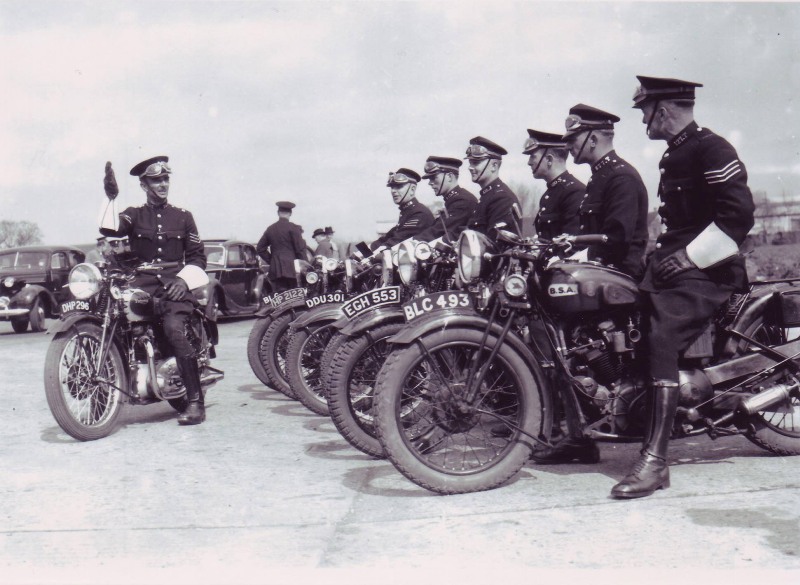
A retired colleague of mine is listing and recording every vehicles that has ever been registered at the Hull or Beverley vehicle registration offices, with a photograph. That number is in the region of a half million vehicles, with more being added every day. I know which project I’d prefer to try!
Over the years I’ve dabbled with Microsoft Access relational databases. I was once told that people who write ACCESS databases make Actuaries appear to be good conversationalists. I do like a good put down!
The number of people who are able to use ACCESS even within Microsoft Office users is small, but to be useful, my register needs to be accessible. And today not everyone has MS Office, or can even afford it if they want the latest version.
Da Dar… Enter Open Source software… Open Source generally relies on users making a small donation towards the costs, and is run and updated by an army of writers who do it all for free.
You are reading this blog on a website built using WordPress, which uses this principle. Open source is in most cases as good as, if not better than commercial equivalents.
So to make it accessible to the largest possible audience, I’ve chosen LibreOffice Base, an open source database programme.
Having downloaded and installed the programme, a couple of YouTube tutorial videos and the manual, I’ve set to work on designing and coding the database. It has meant some interesting bed time reading this week.
Fortunately because of my knowledge of Microsoft Access, it isn’t all in another language. But I do have my work cut out, that is of course when I’m not doing anything else….
Bioturbation
My FutureLearn Dundee University course has continued this week, delving deeper into soil structure. There was a new word to learn – Bioturbation – Which is something I don’t have enough of. The time lapse video says everything. My soil is on the left of the picture!
The course is useful though, even if it is telling me about things that I will struggle to achieve. Manure is not available on the island. We don’t have any cattle, although I have seen a pony this week, tethered by the side of the road – a first – and there are some Free Range Donkeys.
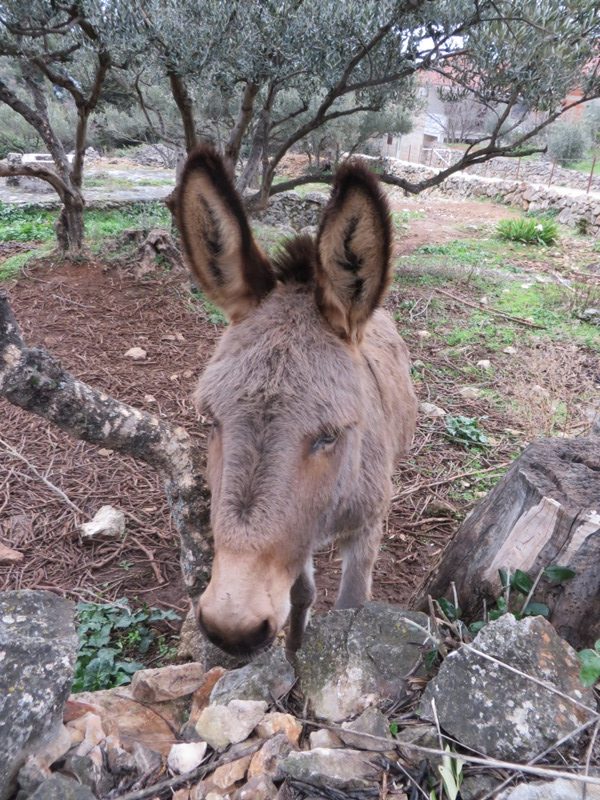
What was clear from the video was the different creatures involved in turning leaf mould into soil. I was aware of worms, but have very few in my soils. But I hadn’t realised about the amount of work that Wood Lice do in recycling plant material. I do have a lot of them, so will leave them in peace to do their work.
Then there are the various fungi involved in the process and all the micro organisms. Although I do keep leaves in the autumn and put them on the compost heap, I really don’t do enough with the heap to turn what I am composing into high quality leaf mould.
Another of the discussions this week has been about a “no dig” method of cultivation. I am only too well aware of what happens when you open the soil weed seed bank, and have been trying through planting Green Manure crops to improve the soil quality.
The idea of “no Dig” cultivation, coupled with increasing the amount of green stuff on the top of the soil, then allowing it to improve the soil quality through bioturbation does appeal to me.
The weeds are growing like crazy at the moment, including the Hairy Bittercress, Cardamin Hirsuta. I pull them up every time I see them, but something to suppress weed growth, and that is what the “no dig cultivation” method promises, would be of immense value to me.
Corrosion
I’ve finally got the car back. It’s only taken the garage three weeks to replace the wheel bearing. But the news was not good. Apparently there is severe corrosion and the fitter said that in the next 12 months I will have to replace the brakes and springs.

He wondered if it had been in the sea in Stari Grad. It hasn’t.
The question is a reasonable one though. The town is very low lying, with the older parts being less than a meter above sea level.

Twice every month the Spring Tide causes water to wash over the harbour wall and into the roadway.
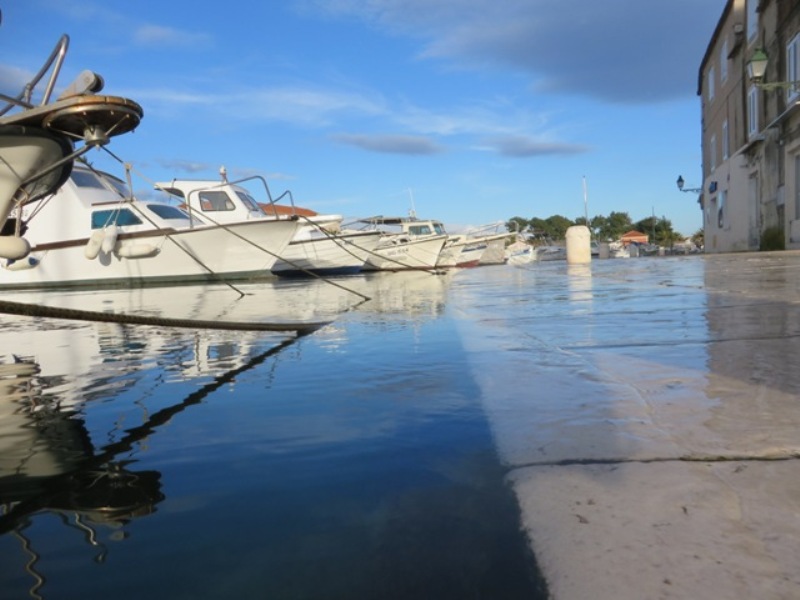
If there is a strong westerly wind, it can push a bulge of water down the fjord and when it reaches the harbour, the only place it can go is over the top of the wall.
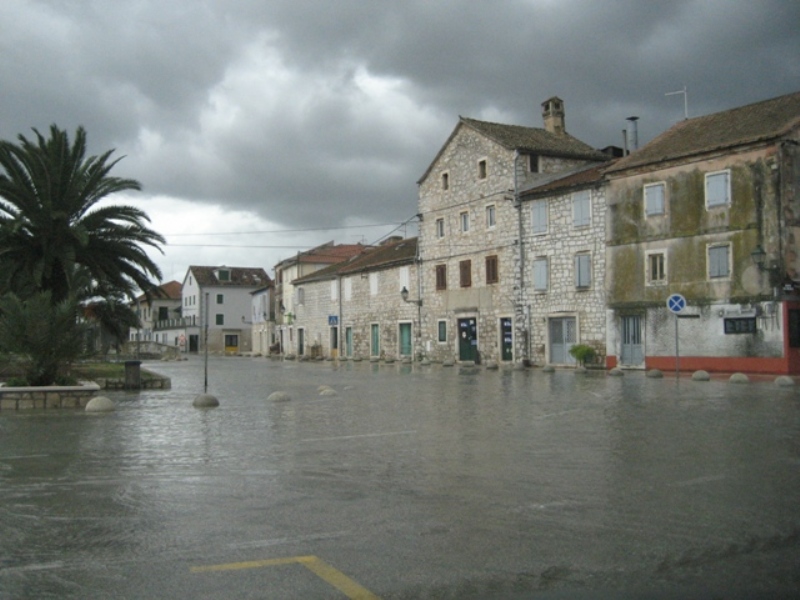
All the buildings close to the sea have boards across doorways to prevent flooding. But I’ve been present when people have driven through the sea water, or have left their car in one of the car parks close to the sea wall, which have flooded.
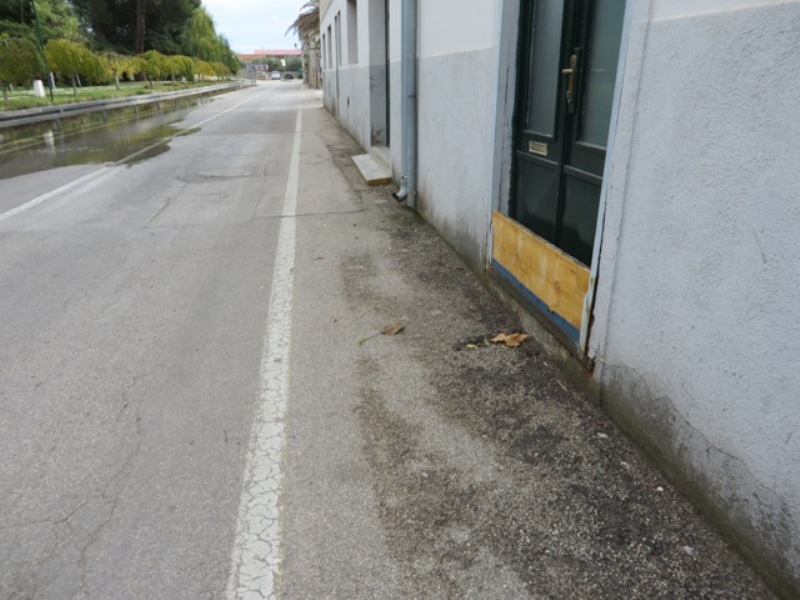
So the question was a fair one based on local circumstances. But, this has not happened to me. I generally park on higher land near the supermarket.
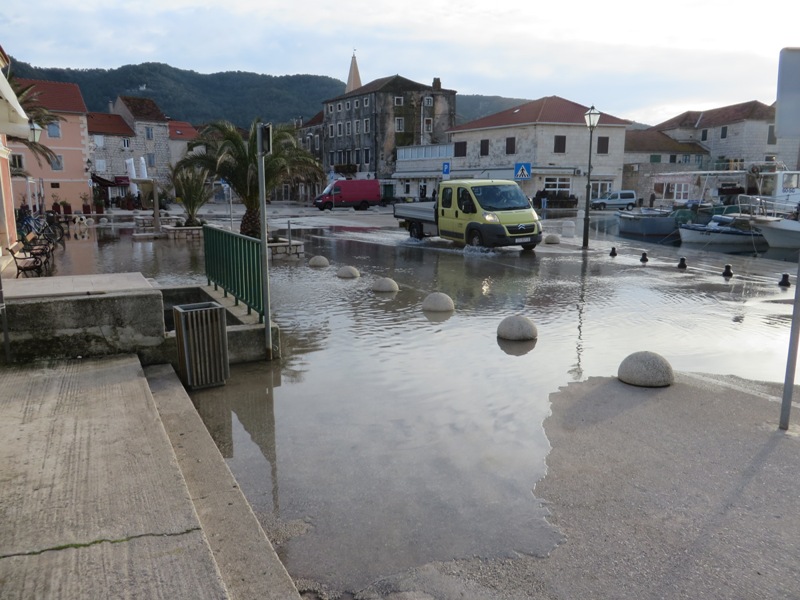
I bought the car when it was already seven years old, from a lady who lived in Bjelovar, Slavonia. This area of the country experiences hard winters and the municipalities use road salt extensively to keep the roads ice free. I suspect road salt may be the culprit rather than sea salt.
The fitter said he had to use a “big hammer” to free the bearing, so next week I will be off to the mainland to get the steering geometry checked at the closest place with a laser alignment system, in Makarska.
I want to have a look under the vehicle myself then, to see how bad it actually is. A preliminary look told me that it has never had an underseal coating, but I need to get properly under it to check the extent of the corrosion, then I’ll decide what to do next.
When the car failed it’s annual check last August and needed 4 new tyres (tyres failed on age not tread depth), the tyre fitter struggled to get the wheels off the hubs as they were corroded on. It makes me think it is all part of the same problem…

Split visit
I had to go over to Split this week, once I got the car back, as I needed a couple of replacement trees, before the annual tree fair shuts this weekend. These are casualties of the extreme cold in January 2017. There were signs of life below the graft union, but the cultivar above the graft is dead.
I took the opportunity to stock up on supplies at Bauhaus and to also try and get some information about the effect the forth coming BREXIT will have on me here. The police here do a lot of the agency work on behalf of the Ministry of the Interior, and after a tour of two police stations, I finally was directed to the right place.
There was one of those machines which issue tickets for the people waiting in the queue. I dutifully took my ticket and discovered there were 38 people in front of me.
I hadn’t bargained on the place being so full, otherwise I would have gone there first. As the ferry departure time was approaching, I walked out before getting close to the desk, so didn’t get my answers.
The trip back was made enjoyable in the warm spring sunshine. I was alone on the top deck. This is not our usual ferry, but one that generally does the run to Ancona in Italy, as the regular ferry is in for it’s annual refurbishment.
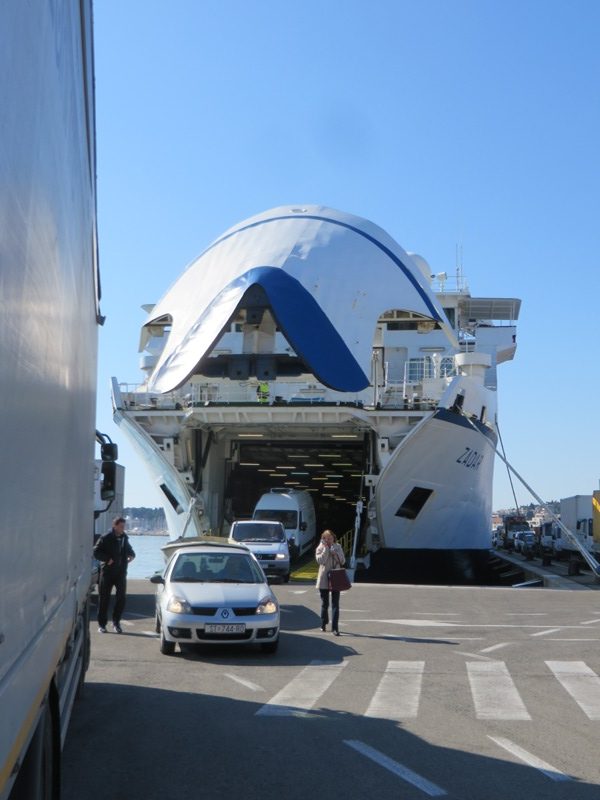
This vessel is substantially bigger, but there were few people on this sailing.
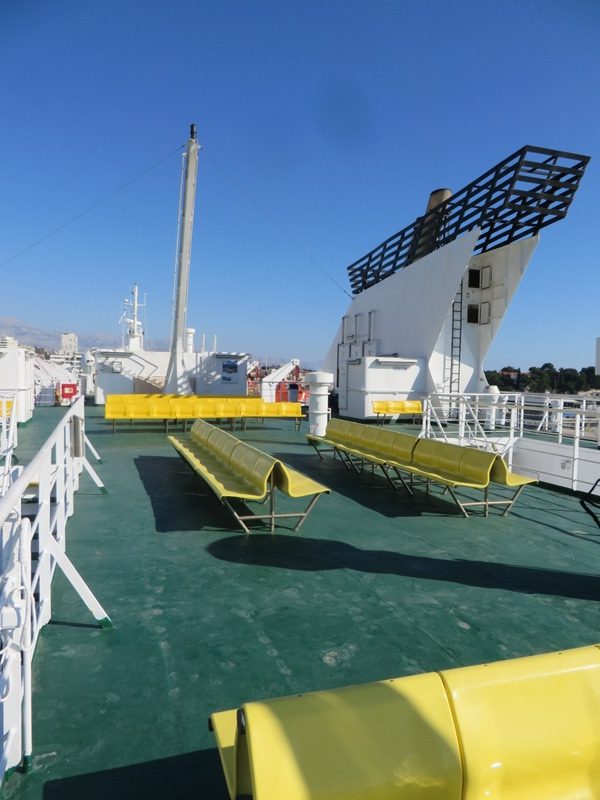
Leaving Split there were a pair of Dolphins playing just outside the harbour entrance. I spent the two hour journey on the top deck, reading in the warm sunshine.
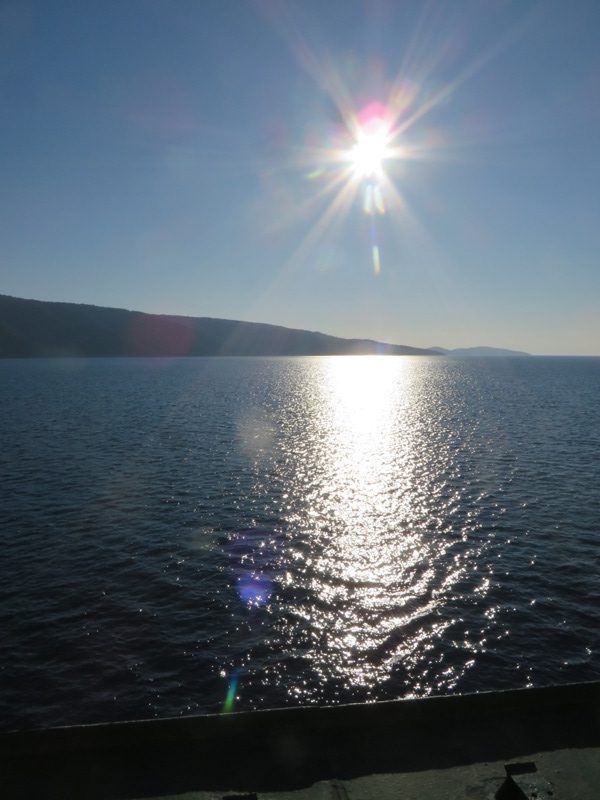
With my replacement fruit trees soaked in a bucket for 24 hours, I planted them on Saturday – a Peach called Spring Crest, and a Washington Orange.
Weather
The steps and dry stone walling has gone very well this week, in fact much better than expected. Partly because of the weather, which has been very warm and spring like and partly because I’ve been sorting stones before laying them, making the job go more smoothly. I have managed to do double the amount of masonry that I had planned to do, that despite the interrupted week.
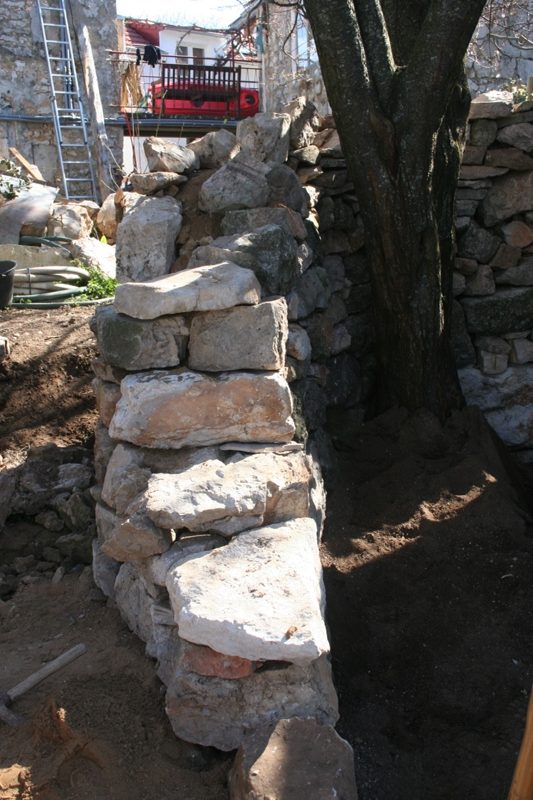
Spring is here and the daily high temperatures have warmed substantially. Looking at the statistics for February, the weekly average high is above the average for the previous years I have been here. But the weekly average low temperature is below the long term average too, so the daily temperature spread is greater.
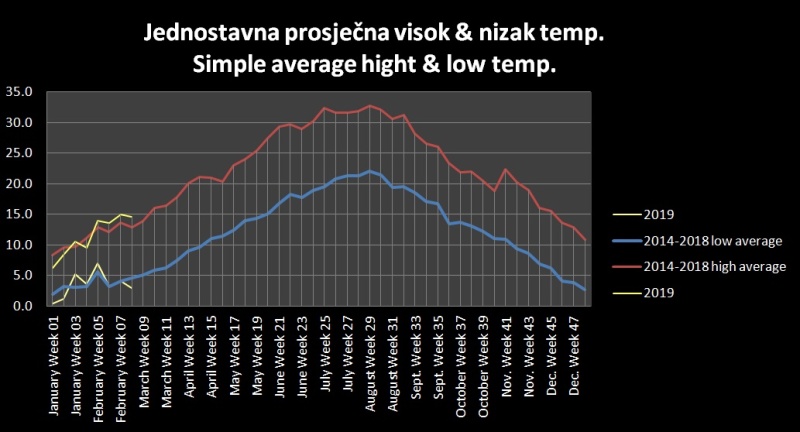
Rainfall in February, traditionally a wet month has been low, with the 2019 cumulative total running at only 50% of the long term average.
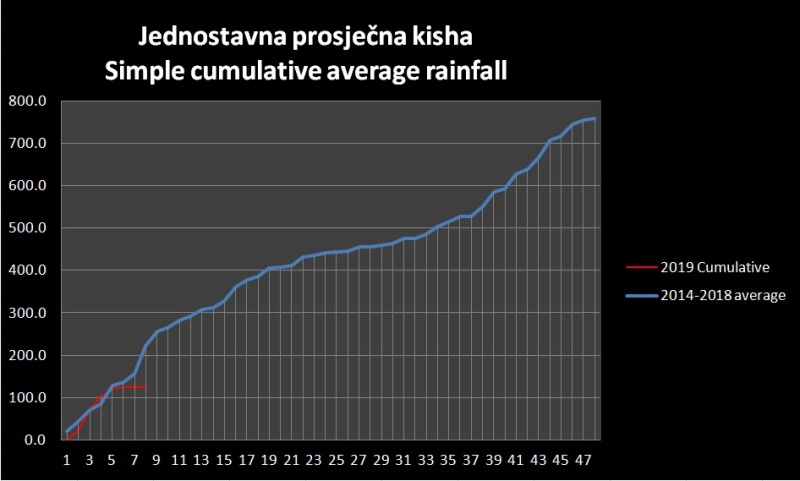
I’ve already seen people watering their vegetable gardens and whilst my soils are not dry yet, if the precipitation for March is still below average, we will be in trouble later in the year.
My Springwatch calendar is in full swing, February and March being the months when most of the indicator species show development. However a number of plants and shrubs are much later than in previous years.
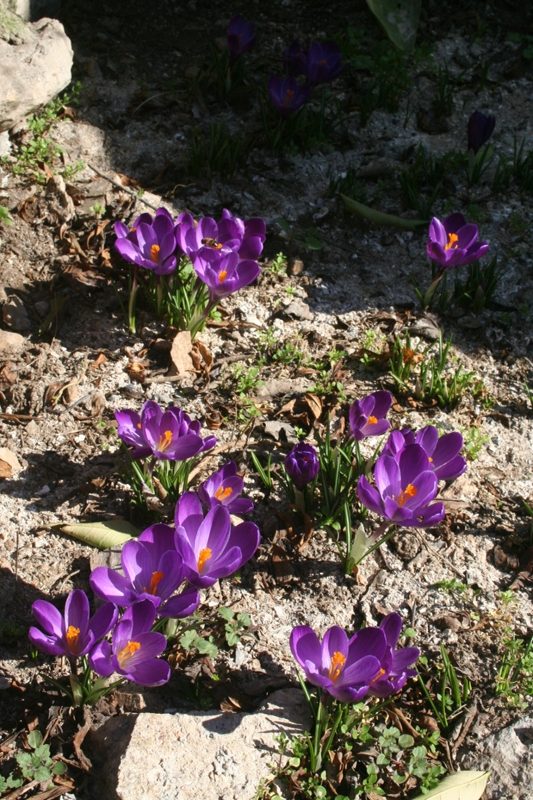
The purple Crocus are generally in flower at the start of February, but this year the flower buds burst, three weeks later than 2018. Across the different species, most things are three weeks late. Only the grape vine buds swelling is earlier, by 5 days.
Clearly there are a lot of interactions at play. Day length, sun, precipitation and temperature all play a part. But it is the interactions which I don’t understand, that clearly have a causal link to plant development.
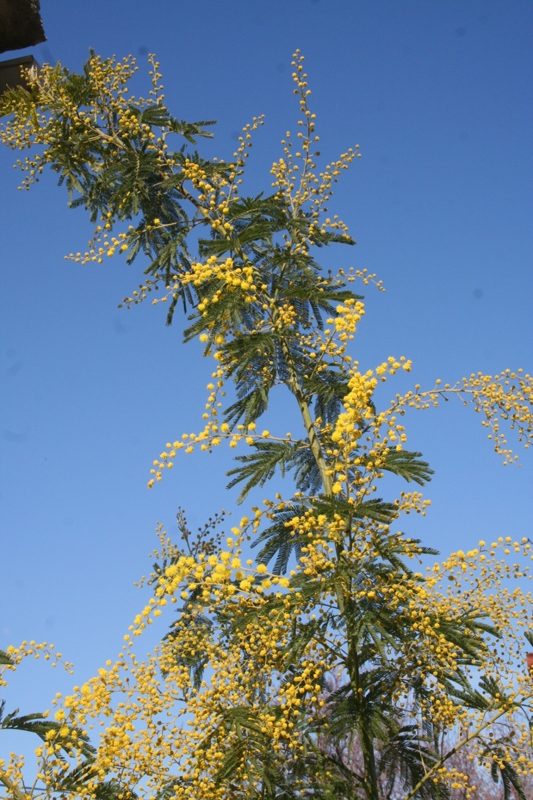
The yellow Mimosa, Acacia dealbata, which I only planted in 2017, is just coming into flower this weekend.
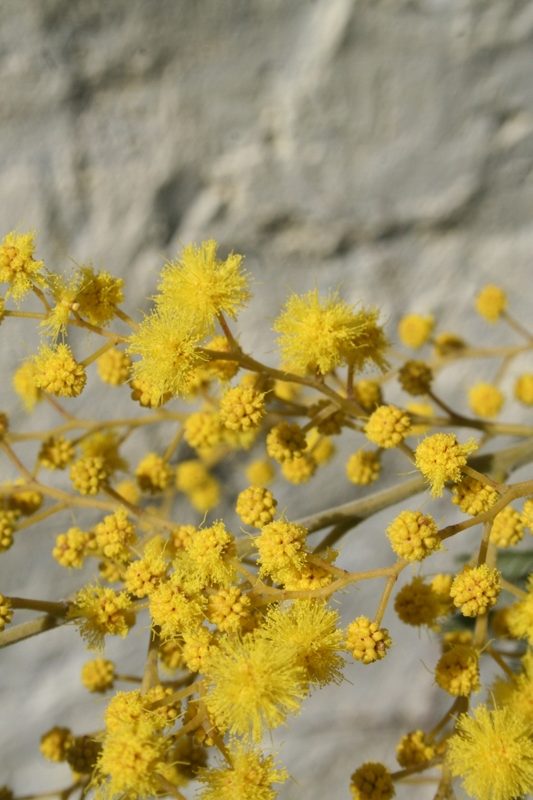
I noticed that others in the village are around a month later than previous years. I’ve planted mine in a sheltered south facing corner, so if it was just about temperature, it should be earlier. The more I see and record, the less I understand!
On Saturday I finished the southern curved buttress wall. Yes, the big stones are heavy!
The northern curved wall will take much longer because I have to dig out round the base, to actually see the foundation stones as they have been buried in rubbish and debris. I can’t say I am especially looking forward to that job.
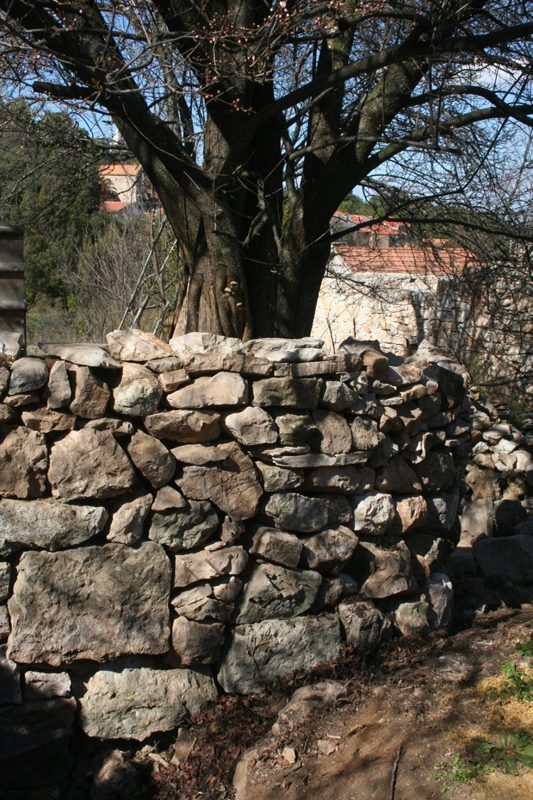
Following my visit to Split, I’ve come back with all the things I need that I can’t get on the island, so there are now a multitude of jobs which need completing, things like the wood shed doors! But there is always another week… NRC
3 Responses
M latham
Hey Norman. Mick here. Good read. Did police ever use a bike called Francis Barnett? I had one as a callow youth in Plymouth. I am currently in St Lucia with Windies and England next stop St Kitts. Everything here grows like billyo it seems. Take care.
Elizabeth
Your course sounds really interesting- glad you are enjoying it.
Reading about bioturbation made me wish you were a bit nearer. I was having a look in our compost bins on Friday and a quick turn revealed masses of tiger worms. You’d be welcome to a few but not a good idea to transport them!
Have you thought of piling up your leaves under any shrubs and around your trees to act as mulch and encourage anything in your ground to get active? I usually push any leaves under their associated plants to rot down. The exception is if there is any infection such as black spot on the roses – these leaves go into the brown council collection bin and will end up in the anaerobic digester. Safely out of harms way.
Andy Obridge
I still am in awe that you find time to do all you do and write a blog Norman! I have slipped into the Croatian polako mode! And busy doing nothing, working the whole day through!
Re old bikes. There is a new member on ‘the’ Group who is a collector and restorer. Not sure what vintage and doubt Police bikes as he has 21 at the last count!
Will look more into that ‘no dig’ for next year. Too late for this as I have just spent the last few days digging all mine over. looks great until the next rain when, as you know, all the stones come to the surface. Can buy bags of manure at the roadside over here. In fact you could maybe pick some up this week. Or I could do ‘a deal’ and bring you 500kg over!
I see the issue with your car! One lady owner, very small km’s, never seen a mechanic? Were the tyres originals? Those hub centric wheels can be an issue! ‘The man’ will have fun adjusting your tracking I think. He will do it but a bit of cursing thrown in for free I guess!!
Thanks again for a good read!